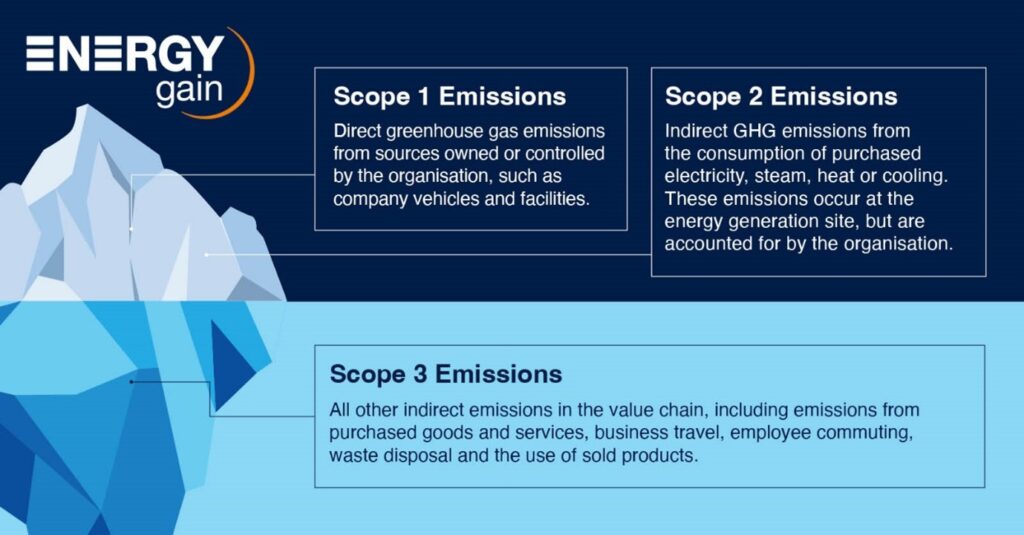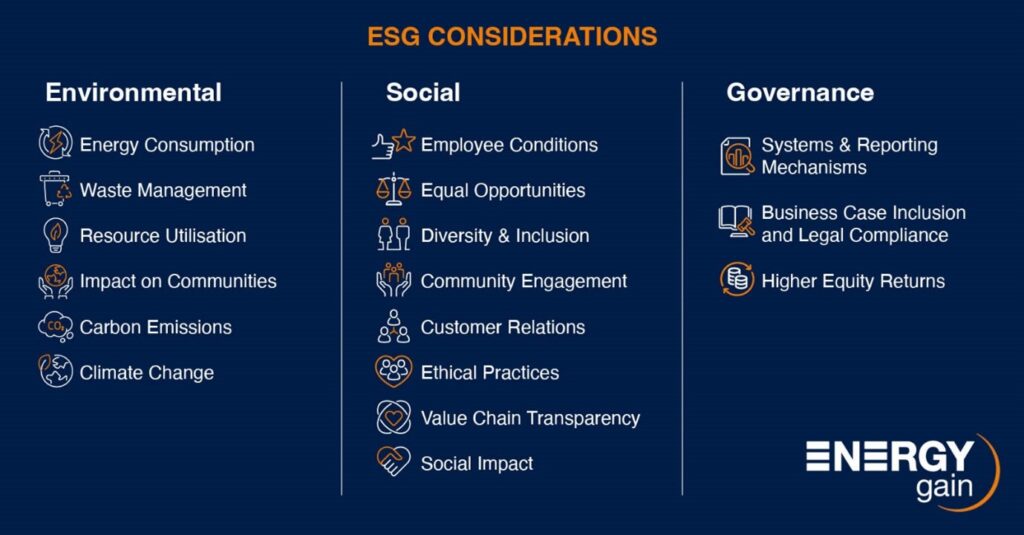Environmental, Social, Governance (ESG) is no longer a trend, marketing tool or nice to have. Implementing an effective ESG plan is vital to business success.
FOCUS ON SCOPE 3 EMISSIONS IS ALREADY HAPPENING:
Public sector and large organisations are accustomed to reporting on Scope 1 and 2 emissions and are now focusing on Scope 3. Imagine an iceberg and Scope 1 & 2 emissions are the easy to see, but scary tip of the iceberg above the water, whereas Scope 3 is the much large proportion of the iceberg that’s below the surface. Scope 3 emissions average 65 – 90% of an organisations’ total greenhouse gas (GHG). Therefore, every business needs suppliers across their entire value chain to reduce their own emissions so that they can improve their Scope 3 ESG performance. No one can escape ESG or put it off without losing customers.

INCENTIVES & CONSEQUENCES:
In order to drive change there’s usually an incentive or consequence, this is already visible across larger operations value chains and will soon affect SME’s. For example:
80% of Sainsburys value chain emissions come from suppliers, therefore they have tasked all suppliers to submit Net Zero strategies by 2025.
National & local government now apply a minimum 10% weighting to ESG performance when awarding new contracts, this is expected to rise.
94% of M&S’s carbon footprint (6.1m tonnes) comes from Scope 3 emissions. In-line with their commitments they’ve tasked all their food suppliers to commit to using 100% renewable electricity by 2025, and to achieve Net Zero by 2040.
We expect to see more businesses adopting this approach in the coming years.

IMPLEMENTING EFFECTIVE ESG:
Implementing a strong ESG policy is inexpensive and gaining an understanding of your current GHG emissions is relatively easy, with some businesses employing experts internally and others supported by third parties like Energy Gain. There are funding and financing opportunities available to upgrade infrastructure and install green technologies. Solar is a proven and quick way to reduce a business’s scope 2 emissions and meet value chain demands from customers.
COMPETITIVE ADVANTAGE:
By using ESG as a sales tool a business can gain competitive advantage. Reducing your emissions helps you to reduce your customers’ GHG and enables your business to score higher on any tender/ framework, while giving your marketing department so many good news stories to shout about. Furthermore, reviewing and auditing a business operation through an ESG lens will lead to other cost-savings and efficiencies.
PREPARATION FOR FUTURE COMPLIANCE REQUIREMENTS
Since 2019, large organisations have been subject to legal & regulatory reporting for Scope 1 & 2 emissions, the effects of which is already filtering down to SMEs. Once an SME understands their GHG emissions they can apply an ESG approach to optimise all future investments and supplier relationships.
PRACTICISING WHAT WE PREACH:
90% of Energy Gain UK’s revenue is derived from the installation of large scale solar photovoltaic solutions. Our vision is to ensure every suitable rooftop is generating free, green power direct from the sun. Our innovative funding models range from cash purchase, discounted financing rates through to zero-cost Power Purchase Agreements (PPAs), making commercial solar solutions accessible to every organisation. Most customers achieve Internal Rates of Return of +20% whilst reducing energy costs and emissions immediately.
We’re also proud to be one of the first in our sector to practise what we preach having transitioned to be a Net Zero accredited organisation, it’s another reason why we’re a better choice for customers and has helped us to secure frameworks including #1 on Fusion 21.


